I’ve read books in English, French, and Arabic. Both fiction and non-fiction.
Mostly, I’ll post here non-fiction English books. At least, the ones that I can recommend and might be relevant to most of you.
Also, I’ll skip the books that I read but don’t remember much of them. I spent a decade reading without taking notes. Please don’t do like me. It’s such a waste.
This section is only meant to spark your interest in books. So I’ll only write my impressions and three notes from the books. For more details, summaries and reviews, you can find them on Amazon or any other source.
For a faster research, you can click on any tag below to find the books of your interests.
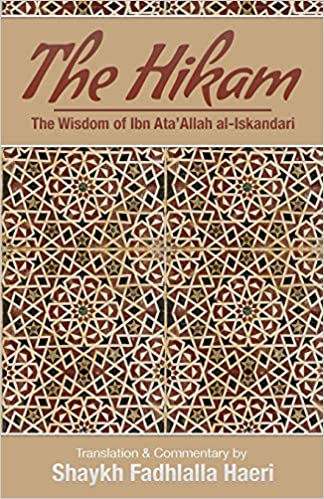
The Hikam
The Wisdom of Ibn Ata’ Allah al-Iskandari
Shaykh Fadhlalla Haeri
I loved The Hikam so much that I read it twice in a row. It will definitely gain a long-term place on my nightstand. It's a collection of 264 aphorisms from a great Sufi master. Too much wisdom packed in a short book!
Al-Iskandari's hikam are timeless, eye-opening, and thought-provoking. You'll find some of my favorite hikam, thoughts, impressions, and commentaries on my top 3 in "Book Notes".
Three notes from the book:
1- If you want to receive gifts, then perfect your spiritual poverty and desperate need: “Alms are only for the poor.” [9:60]
2- Reflection is the lantern of the heart, so when it leaves the heart has no light.
3- Looking out for the faults hidden within you is better than looking out for the invisible realities veiled from you.
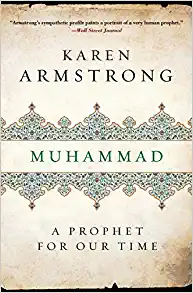
Muhammad
A Prophet for Our Time
Karen Armstrong
It is one thing that, we Muslims, are praising the Prophet Muhammad (pbuh). It is another thing that an "outsider" to Islam praises him. Karen Armstrong is a renowned commentator on religious history. Even if she has some distance from what we consider the miracles of the life of the Prophet, she painted a fascinating and fair portrait of Muhammad (pbuh). This book is particularly important when we know that Western critics persist in viewing the Prophet of Islam as a monster!
Three notes from the book:
1- The Quranic institution of polygamy was a piece of social legislation. It was designed not to gratify the male sexual appetite, but to correct the injustices done to widows, orphans, and other female dependants, who were especially vulnerable.
2- Some of the Jews were also becoming hostile to the newcomers. Muhammad did not expect them to convert to Islam, and their quarrel with him was not primarily religious but political and economic. The Jews' position in the oasis had deteriorated, and if Muhammad succeeded in uniting Aws and Khazraj, they would have no chance of regaining their former supremacy.
3- The primary meaning of that word [jihad], which we hear so often today, is not "holy war" but the "effort" or "struggle" necessary to put the will of God into practice. Muslims are exhorted to strive in this endeavor on all fronts: intellectual, social, economic, spiritual, and domestic. Sometimes they would have to fight, but this was not their chief duty.
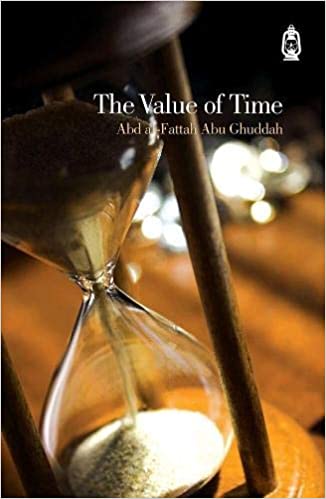
The Value of Time
A collection of amazing sayings, anecdotes and wonderful stories of the scholars of the Muslim Ummah
Shaykh Abd al-Fattah Abu Ghuddah
Learning about the accomplishments of great Muslim scholars is inspiring. They could marry a rich spiritual life, hunger for knowledge, and action that benefit themselves and others beyond measure. This is everything a Muslim would want to aspire to. I wrote an article about this book that you can find in Articles-->Book Notes-->The Value of Time. This book is magical as it gives an immediate boost to ambition and determination.
Three notes from the book:
1- The Prophet (ﷺ) said: “There are two blessings that many people waste: health and free time.” [Bukhari]
2- Imam al-Shafii said: “Keep your soul occupied with good, otherwise it will keep you occupied with evil.”
3- Imam al-Halabi wrote in the biography of al-Suyuti in Bughyat al-Wuat:
To do a thing today, and the same tomorrow.
Gathering is the essence of knowledge.
Thus one may achieve wisdom.
For streams are but the gathering of drops.
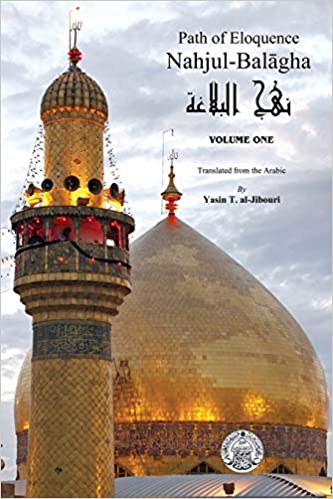
Nahjul-Balagha
Path of Eloquence
Yasin al-Jibouri
This book is a compilation of the sermons of Ali ibn Au Talib, cousin and son-in-law of the Prophet Muhammad (PBUH). It has the Arabic text with English translation. It's perfect as my Arabic is not good enough to understand Imam Ali. He's at another level of eloquence and depth. The topics are various. My favorite sermons are the ones speaking about Allah and our relationship with Him.
Three notes from the book:
1- Lord! Suffices me for honor to be Your servant, and suffices me for pride that You are my Lord; You are as I love You to be, so do make me as You love I should be.
2- Beware! At the time of committing evil deeds, remember the destroyer of joys, the spoiler of pleasures, and the killer of desires (namely death). Seek assistance of Allah for fulfillment of His obligatory rights and for (thanking Him) for His countless bounties and benevolence.
3- Eyes do not see Him face-to-face, but hearts perceive Him through the realities of belief. He is near to things but not (physically) contiguous. He is far from them but not (physically) separate. He speaks but not with reflection. He intends but not with preparation. He molds, but not with (the assistance) of limbs...
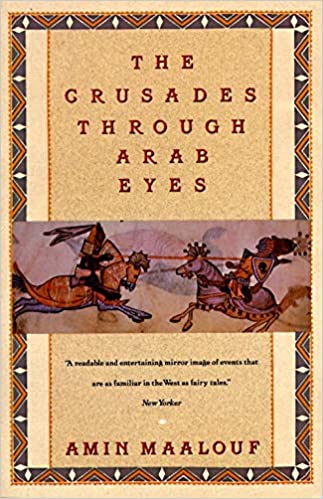
The Crusades Through Arab Eyes
The Other Side of The Story
Amin Maalouf
As I was writing this note, I realized that Amin Maalouf is one of the authors I read the most. I enjoyed reading 'Leo Africanus', 'The Rock of Tanios' or 'Samarkand'. The dry style of many history books makes them difficult to read. This one is written like a novel and you'll have a hard time putting it down.
Three notes from the book:
1- Regard the Franj! Behold with what obstinacy they fight for their religion, while we, the Muslims, show no enthusiasm for waging holy war. Saladin
2- When some of his collaborators chided him for his profligacy, Saladin answered with a nonchalant smile: There are people for whom money is no more important than sand.’
3- As for territory, this land has always been ours, and your occupation is only transitory. You were able to settle in it because of the weakness of the Muslims who then peopled it, but so long as there is war, we will not allow you to enjoy your possessions.
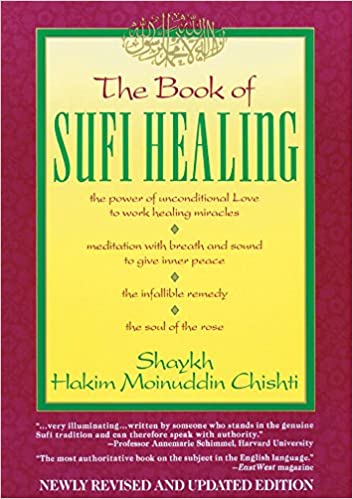
The Book of Sufi Healing
The infallible remedy
G. M. Chishti
I don't remember exactly how I came across this book. I was searching about prophetic medicine, then jumped to Greek medicine, and ended up reading about holistic medicine systems. The Sufi system was one of them. "Herbal Formulas for Common Ailments" is the chapter I still go back to.
Three notes from the book:
1- What is a human being? How did it come into existence? How is it sustained in existence? And what is the purpose of human life? Without understanding the answers to these questions, we can never have a satisfactory knowledge of the real type of health we should be seeking.
2- Behind every natural action of the human body is an inherent wisdom, a mechanism that allows the body to heal itself. In fact, no herb, food, or any other substance or procedure can do anything on its own to heal.
3- I have said many times that the most important hospital in the world is your own kitchen, because it's here where the essence of the food is extracted, and health gained or lost.
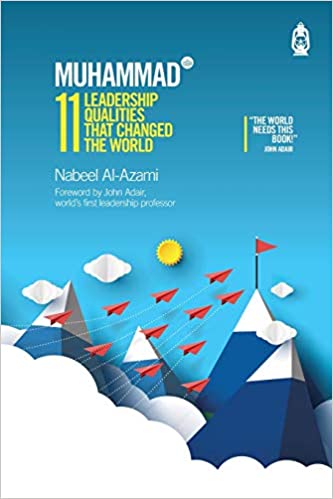
Muhammad (s)
11 Leadership Qualities that Changed the World
Nabeel Al-Azami
It's already a tour de force to condense the leadership qualities of Muhammad into 11. More than a list of qualities, this book is meant to be practical. It includes contemporary case studies with tips on how to implement the prophetic qualities in our daily life.
Three notes from the book:
1- Leadership is like a tea bag, you don't know how good it is until it's in hot water.
2- Facilitate things for people, and do not make it hard for them and give them good tidings (encouragement) and do not make them run away (discouragement).
3- The beauty of values and qualities such as integrity, fairness, and wisdom is that they don't have any religion and they have many religions. Hence, a religious person can apply them universally.
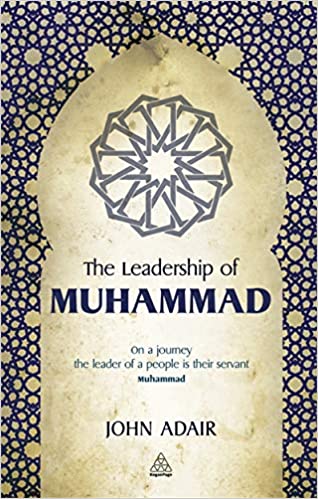
The Leadership of Muhammad
On a journey, the leader of a people is their servant
John Adair
This book focuses more on the bedouin beliefs at the time of the Prophet. It analyses some events of Muhammad's life to show the leadership qualities he displayed. This book inspired me to write my speech "Winning Together" when I was still a Toastmasters member.
Three notes from the book:
1- Deal as gently with the faults of others as you do with your own.
2- Muhammad was not a reasonable man, not even by the standards of his day. But reasonable men do not change the world.
3- When God wants to punish the sheep he sends them a blind shepherd.
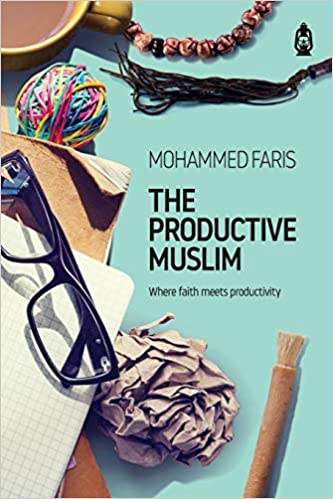
The Productive Muslim
Where Faith Meets Productivity
Mohammed Faris
I’ve never heard of Muslims reconciling faith and productivity before this book. I was so excited that I sent a message to the author. Now you have in one book the science of productivity combined with the spiritual dimension of Islam.
Three notes from the book:
1- Productivity= Focus x Energy x Time (towards maximizing reward in the Hereafter)
2- Barakah is the foundation of your spiritual productivity. It may be hard to measure, but it is real.
3- You CANNOT manage time! Why? Because one cannot manage what they can’t control.









